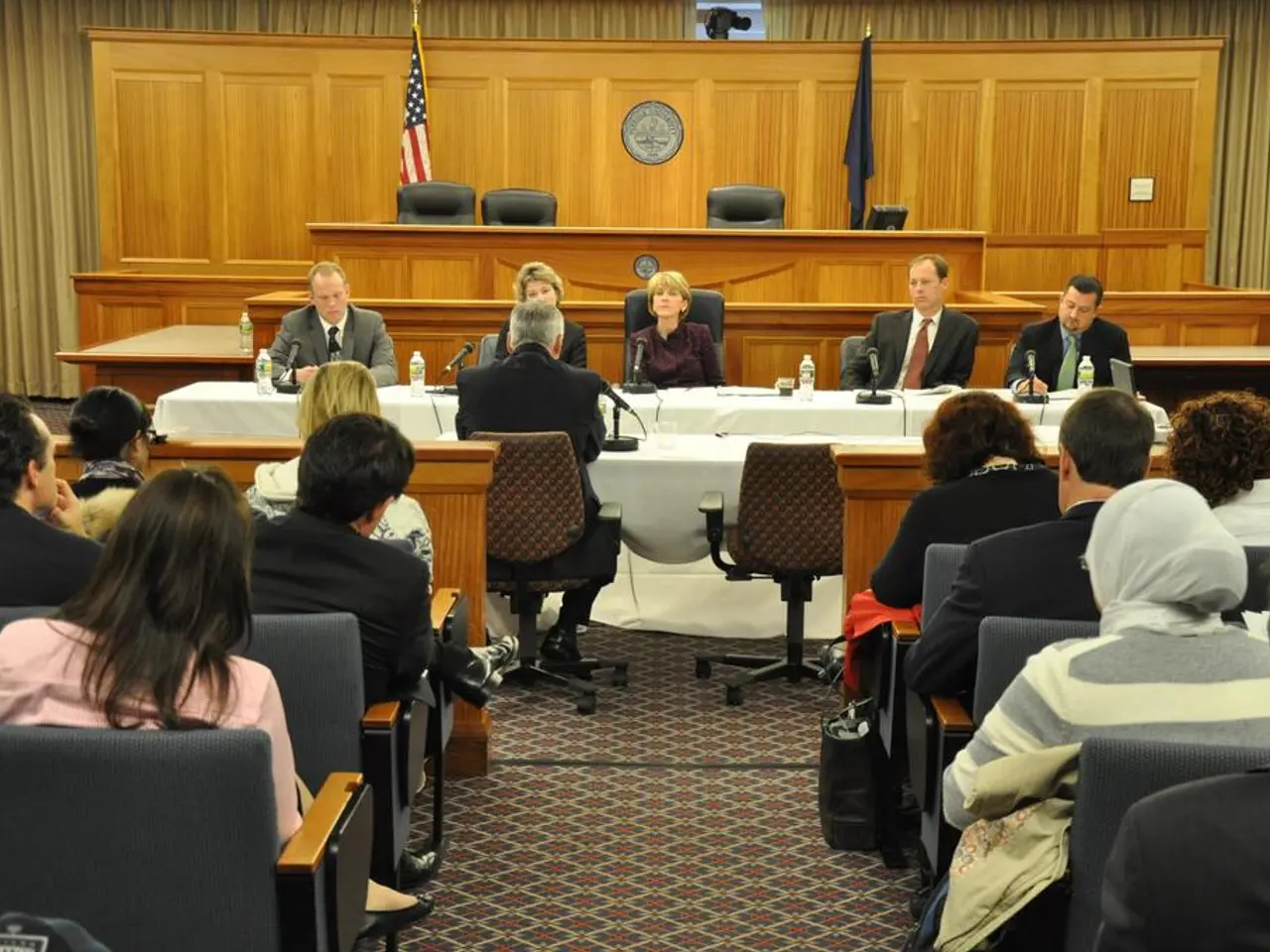U.S. and Iranian officials set for discussions next week, as current truce remains intact
Headline: Tensions between Iran and Israel persist following a ceasefire, with both sides bracing for potential hostilities
Subheadline: The truce brings little respite, as Israel readies for more operations and Iran prepares to resume nuclear efforts
The fragile cease-fire between Iran and Israel, although holding for now, casts no shadow of lasting peace. Israel Defense Minister Israel Katz commands the Israeli Defense Forces (IDF) to remain vigilant, readying for possible resumption of operations against Iran. The primary objectives include maintaining air superiority, halting Iran’s nuclear and missile programs from re-emerging, and disrupting Iranian support to allied groups.
Israel has continued its relentless strikes, targeting significant Iranian infrastructures like internal security and social control centers in Tehran, the Basij headquarters, and Evin Prison, which houses political prisoners, causing casualties among staff. These attacks underscore the ongoing tensions and overt hostilities.
On the Iranian front, officials maintain their right to uranium enrichment and intend to resume nuclear activities. Despite the damage brought by U.S. and Israeli strikes that have hindered Iran’s enrichment capabilities, Iran's stockpile of enriched uranium continues to present a long-term threat. Internally, factions within Iran’s regime are emerging, with moderate officials advocating a more pragmatic and diplomatic approach against the hardline factions.
The United States is maintaining its involvement, seeking to restart nuclear negotiations with Iran. However, Iran is predicted to reject any U.S. proposal that demands halting enrichment activities on their soil, upholding their original stance. Meanwhile, Israeli intelligence agency Mossad has issued warnings to Iranian civilians, advising them to steer clear of IRGC personnel and bases to minimize casualties from potential Israeli strikes.
In essence, while an official cease-fire might be in place, the conflict between Iran and Israel remains far from over. Israel has stayed prepared for additional military actions, Iran persists in enriching uranium, and the U.S. remains actively involved but faces numerous obstacles. Internal Iranian political shifts and continued Israeli strikes contribute to a vulnerable and tense situation, up till late June 2025.
[1] Source: enrichment data regarding expansion of Israeli military actions and Iran's nuclear capabilities
[2] Source: enrichment data regarding political dynamics within Iran and continued U.S. engagement
- As diplomatic efforts towards a lasting peace between Iran and Israel remain elusive, international news outlets continue to cover the region's war-and-conflicts, with reports of Israel Defense Forces maintaining preparedness for resumed operations.
- In the midst of these political tensions, the defense of each nation takes center stage, with Israel Defense Minister Katz emphasizing the importance of disrupting Iran's nuclear and missile programs as part of Israel's military strategy.
- Meanwhile, the intentions of Iran become increasingly clear, as the country persists in its uranium enrichment activities and resumes nuclear efforts, confronting the ongoing international politics surrounding war-and-conflicts and nuclear proliferation.








